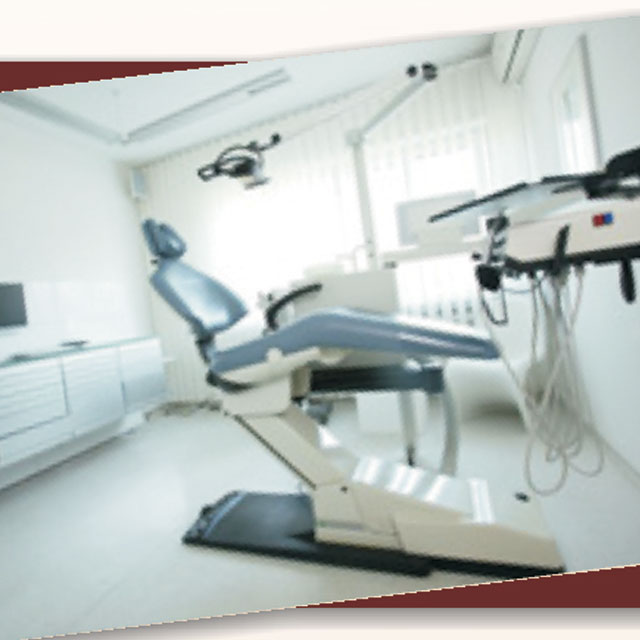Understanding the Shadows
Recognizing the Signs of Schizophrenia
Delusions: Distorted Beliefs and Misinterpretations of Reality
Hallucinations: Sensory Experiences Without External Stimuli
Disorganized Thinking and Speech: Difficulty with Coherent Thought and Expression
Negative Symptoms: A Loss of Motivation, Pleasure, and Social Engagement
Cognitive Impairment: Difficulties with Memory, Attention, and Executive Functioning
…healthy dinner
Grilled Chicken and Vegetables
One of the easiest and healthiest dinners you can make is grilled chicken paired with a variety of vegetables. Start by marinating boneless, skinless chicken breasts in olive oil, garlic, lemon juice, and your favorite herbs like rosemary or thyme. Grill the chicken until it’s cooked through and has a nice char. Serve it with a side of grilled vegetables such as bell peppers, zucchini, and cherry tomatoes. This meal is high in protein and packed with vitamins and minerals from the vegetables.
Quinoa Salad with Avocado
Quinoa is a superfood that is not only high in protein but also rich in fiber. For a healthy dinner, cook quinoa according to the package instructions and let it cool. Toss it with diced avocado, cherry tomatoes, cucumbers, red onion, and a handful of chopped cilantro. Dress the salad with a simple vinaigrette made from olive oil, lime juice, and a pinch of salt and pepper. This refreshing and filling salad is perfect for a light but satisfying dinner.
Baked Salmon with Asparagus
Salmon is a fantastic source of omega-3 fatty acids, which are beneficial for heart health. For an easy and healthy dinner, bake a salmon fillet with a drizzle of olive oil, a squeeze of lemon, and a sprinkle of salt and pepper. Serve it with roasted asparagus, which you can prepare by tossing the spears in olive oil, garlic, and a little sea salt before baking. This meal is quick to prepare and incredibly nutritious.
Veggie Stir-Fry
A vegetable stir-fry is a great way to use up whatever veggies you have in the fridge and is very quick to make. Start by heating a little sesame oil in a large pan or wok. Add minced garlic and ginger, then toss in a variety of chopped …
Manage Diabetes Expert Health Tips at Your Fingertips

Introduction
Living with diabetes can present challenges, but armed with the right knowledge and strategies, managing the condition becomes much easier. In this article, we’ll delve into expert health tips for managing diabetes, providing you with practical advice and guidance to take control of your health and well-being.
Understanding Diabetes
Firstly, it’s crucial to understand what diabetes is and how it affects your body. Diabetes is a chronic condition characterized by high blood sugar levels, either due to insufficient insulin production (Type 1 diabetes) or the body’s inability to effectively use insulin (Type 2 diabetes). Understanding the underlying mechanisms of diabetes lays the foundation for effective management strategies.
Importance of Blood Sugar Monitoring
Regular blood sugar monitoring is essential for effectively managing diabetes. By keeping track of your blood sugar levels throughout the day, you can identify patterns and make informed decisions about your diet, medication, and lifestyle choices. Aim to monitor your blood sugar levels as advised by your healthcare provider, and don’t hesitate to seek guidance if you notice any fluctuations.
Healthy Eating Habits
Maintaining a balanced and nutritious diet is paramount for managing diabetes. Focus on incorporating plenty of fruits, vegetables, whole grains, and lean proteins into your meals while limiting your intake of refined sugars and carbohydrates. Additionally, aim to eat regular, well-balanced meals and snacks to help regulate your blood sugar levels throughout the day.
Importance of Physical Activity
Regular physical activity is a cornerstone of diabetes management. Exercise helps improve insulin sensitivity, lower blood sugar levels, and promote overall health and well-being. Aim for at least 150 minutes of moderate-intensity aerobic activity per week, such as brisk walking, swimming, or cycling, along with muscle-strengthening activities on two or more days per week.
Medication Management
For many people with diabetes, medication is a crucial component
Elevate Your Exercise Essential Workout Strategies
Introduction:
Exercise is not just about moving your body; it’s about optimizing your efforts to achieve maximum results. In this article, we’ll explore essential workout strategies that can elevate your exercise routine and take your fitness journey to the next level.
Set Clear Goals:
Before diving into any exercise routine, it’s crucial to establish clear and achievable goals. Whether you aim to lose weight, build muscle, improve endurance, or enhance overall health, having specific objectives will guide your efforts and keep you motivated. Write down your goals, break them into smaller milestones, and track your progress along the way.
Choose the Right Exercises:
Not all exercises are created equal, and it’s essential to choose activities that align with your goals and preferences. Incorporate a mix of cardiovascular exercise, strength training, and flexibility work into your routine to target different muscle groups and aspects of fitness. Experiment with different workouts, classes, or sports to find what you enjoy and what challenges you.
Focus on Proper Form:
Maintaining proper form during exercise is critical for maximizing effectiveness and preventing injury. Take the time to learn the correct technique for each exercise, and don’t hesitate to ask for guidance from a fitness professional if needed. Focus on proper alignment, breathing, and posture to ensure you’re getting the most out of every movement.
Progress Gradually:
While it’s tempting to push yourself to the limit from the get-go, it’s essential to progress gradually to avoid burnout and injury. Start with lighter weights, shorter durations, or lower intensities and gradually increase as your strength, endurance, and confidence improve. Listen to your body and adjust your workouts accordingly, paying attention to signs of fatigue or discomfort.
Stay Consistent:
Consistency is key when it comes to seeing results from your exercise routine. Make exercise a non-negotiable part of
Your Dental Care Solution Nearby Clinics Available

Find the Nearest Dental Clinic for Quality Care
Navigating Your Dental Care Journey
In the realm of dental care, accessibility is key. Whether you’re in the midst of a dental emergency or simply due for a routine check-up, knowing where to find the nearest dental clinic can make all the difference. Let’s explore how you can locate top-quality dental care right in your neighborhood.
Convenience at Your Fingertips
Gone are the days of scouring the phone book or driving around aimlessly in search of a dental clinic. With today’s technology, finding a nearby dental clinic is easier than ever. Utilize online search engines, maps, or specialized dental clinic directories to pinpoint the closest options to your location.
Factors to Consider
While proximity is important, it shouldn’t be the sole determining factor in your choice of dental clinic. Consider other crucial aspects such as the reputation of the clinic, the qualifications of the dentists, available services, and patient reviews. Aim for a balance between convenience and quality to ensure optimal dental care.
Emergency Dental Care
Dental emergencies can strike at any moment, from severe toothaches to knocked-out teeth. In such situations, having quick access to a nearby dental clinic is paramount. Look for clinics that offer emergency dental services or have flexible scheduling to accommodate urgent cases.
Routine Check-Ups and Preventive Care
Regular dental check-ups are essential for maintaining oral health and preventing potential issues down the line. When selecting a dental clinic, prioritize those that offer comprehensive preventive care services, including cleanings, exams, and oral hygiene education. Proactive dental care can save you from more extensive and costly treatments in the future.
Specialized Services
Depending on your specific dental needs, you may require specialized services such as orthodontics, oral surgery, or cosmetic dentistry. When researching nearby dental clinics, inquire about
True Smiles Dental Your Gateway to Lasting Oral Health

Revolutionizing Dental Care: True Smiles Dental Leads the Way
The True Smiles Difference: A Commitment to Excellence
At True Smiles Dental, we believe that every smile tells a unique story. That’s why we’re dedicated to providing more than just standard dental care – we’re committed to delivering excellence in every aspect of your experience. From the moment you step into our clinic, you’ll notice the difference. Our warm and welcoming atmosphere, coupled with our state-of-the-art facilities, sets the stage for a dental journey like no other.
Personalized Care Tailored to You
We understand that no two smiles are alike, which is why our approach to dental care is highly personalized. From routine check-ups to complex procedures, our experienced team takes the time to listen to your concerns, understand your goals, and tailor a treatment plan that’s just right for you. Whether you’re looking to enhance your smile’s appearance or address oral health issues, we’re here to guide you every step of the way.
Cutting-Edge Technology for Superior Results
At True Smiles Dental, we’re committed to staying at the forefront of dental innovation. That’s why we invest in the latest technology and techniques to ensure that our patients receive the highest standard of care possible. From digital X-rays and intraoral cameras to advanced sterilization methods, we utilize cutting-edge tools to provide accurate diagnoses and optimal treatment outcomes. With True Smiles Dental, you can trust that you’re in good hands.
Compassionate Professionals Who Put You First
We understand that visiting the dentist can be a daunting experience for some people. That’s why our team goes above and beyond to create a comfortable and supportive environment for our patients. Our friendly staff is here to answer any questions you may have, alleviate any concerns, and provide gentle care that puts your needs first.
Understanding Right-Side Chest Pain Causes & Treatment

Understanding Right-Side Chest Pain
Exploring the Causes
Right-side chest pain can be alarming, causing anxiety and concern. It’s essential to understand the various factors that can contribute to this discomfort. One common cause is musculoskeletal issues, such as strained muscles or rib injuries. These can result from physical exertion, trauma, or even poor posture. Additionally, conditions like costochondritis, inflammation of the cartilage connecting the ribs to the breastbone, can also lead to right-side chest pain.
Assessing Cardiac Health
When experiencing right-side chest pain, it’s natural to worry about heart-related issues. While left-side chest pain is often associated with heart problems, it’s crucial not to overlook the possibility of cardiac issues causing discomfort on the right side as well. Conditions like angina, caused by reduced blood flow to the heart muscle, or even a heart attack, can manifest as right-side chest pain. It’s essential to monitor accompanying symptoms such as shortness of breath, nausea, or dizziness, which may indicate a cardiac emergency.
Considering Gastrointestinal Factors
Another potential culprit for right-side chest pain is gastrointestinal issues. Conditions like acid reflux, where stomach acid flows back into the esophagus, can cause a burning sensation that radiates to the chest, including the right side. Similarly, gallbladder problems, such as gallstones or inflammation (cholecystitis), can lead to sharp or cramping pain in the upper right abdomen that may extend to the chest.
Addressing Respiratory Concerns
Respiratory conditions can also contribute to right-side chest pain. Pneumonia, an infection of the lungs, can cause chest discomfort that often worsens with breathing or coughing. Pleurisy, inflammation of the lining around the lungs, can lead to sharp chest pain that may be more pronounced on one side. Additionally, conditions like asthma or bronchitis can cause tightness or discomfort in the chest, which may affect the right side as well.
Balancing Act: Essential Tips for Inner Stability

Introduction
Maintaining inner stability is crucial in navigating life’s challenges with resilience and composure. In this article, we’ll explore essential tips for achieving and sustaining inner stability, fostering a sense of balance amidst the complexities of daily life.
Understanding Inner Stability
Inner stability is more than a fleeting state of calmness; it’s a dynamic equilibrium that allows you to respond to external circumstances with clarity and poise. Understanding the components of inner stability is the first step toward cultivating a grounded and centered mindset.
Mindfulness Practices for Grounding
Mindfulness serves as a powerful tool in cultivating inner stability. By bringing attention to the present moment, mindfulness practices, such as meditation and mindful breathing, anchor the mind, promoting a sense of calm and clarity. Regular incorporation of these practices can significantly contribute to inner stability.
Emotional Regulation Strategies
Inner stability involves skillful emotional regulation. Learning to recognize and navigate your emotions without being overwhelmed is key. Techniques like deep breathing, journaling, or seeking support from others can help regulate emotions, fostering a stable emotional foundation.
Creating a Supportive Environment
Surrounding yourself with a supportive environment is essential for inner stability. Cultivate relationships with individuals who uplift and encourage you. Establishing a network of support contributes to a sense of belonging and provides a safety net during challenging times.
Setting Boundaries for Well-being
Maintaining inner stability requires setting healthy boundaries. Learn to say no when necessary and prioritize self-care. Setting clear boundaries protects your mental and emotional well-being, preventing burnout and promoting a more balanced life.
Time Management for Reduced Stress
Effective time management is a practical aspect of inner stability. Prioritize tasks, break them into manageable chunks, and allow time for relaxation. Balancing work and leisure prevents overwhelm and supports a more stable and sustainable lifestyle.
Mind-Body Connection for Holistic Stability
Essential Dental Hygiene: Guidelines for Optimal Oral Health

Optimal Oral Health: Navigating Dental Hygiene Guidelines
Maintaining excellent dental hygiene is crucial for a healthy and confident smile. Explore essential Dental Hygiene Guidelines that serve as a roadmap for optimal oral health, covering everything from daily habits to professional care.
Dental Hygiene Guidelines – A Link to Comprehensive Care
Unlock the secrets to a healthy smile with comprehensive insights and practical tips at Dental Hygiene Guidelines. This valuable resource offers guidance on navigating the intricacies of oral care, empowering you to make informed decisions about your dental health.
Daily Habits for a Healthy Smile
The foundation of good dental hygiene lies in daily habits. Brush your teeth at least twice a day using fluoride toothpaste and a soft-bristled brush. Remember to floss daily to remove plaque and debris from between your teeth, contributing to the prevention of cavities and gum disease.
Choosing the Right Oral Care Products
Selecting the right oral care products is a crucial aspect of dental hygiene. Choose fluoride toothpaste to strengthen enamel, an antimicrobial or fluoride mouthwash for added protection, and a toothbrush with soft bristles to avoid damaging your gums and enamel.
The Importance of Regular Dental Check-ups
Professional dental check-ups are integral to maintaining optimal oral health. Regular visits to your dentist allow for the early detection of potential issues, preventive care, and professional cleaning to remove stubborn plaque and tartar that regular brushing may miss.
Balancing Diet for Dental Health
Nutrition plays a significant role in dental hygiene. A balanced diet rich in calcium, vitamins, and minerals contributes to strong teeth and gums. Limit sugary snacks and acidic beverages, as they can lead to tooth decay and erosion. Hydrate with water to help rinse away food particles and maintain saliva production.
Understanding Proper Brushing Technique
Effective brushing technique is paramount for




